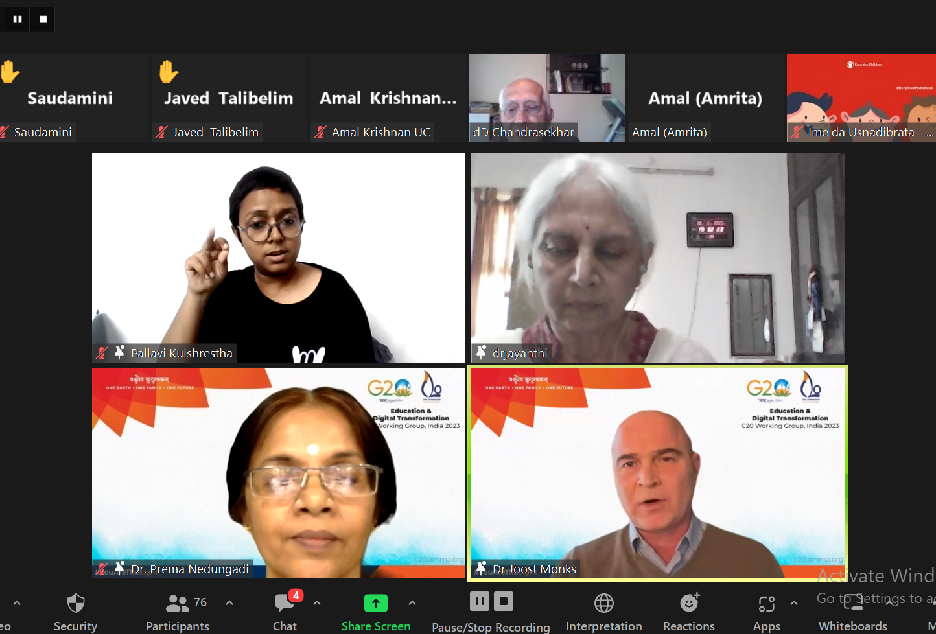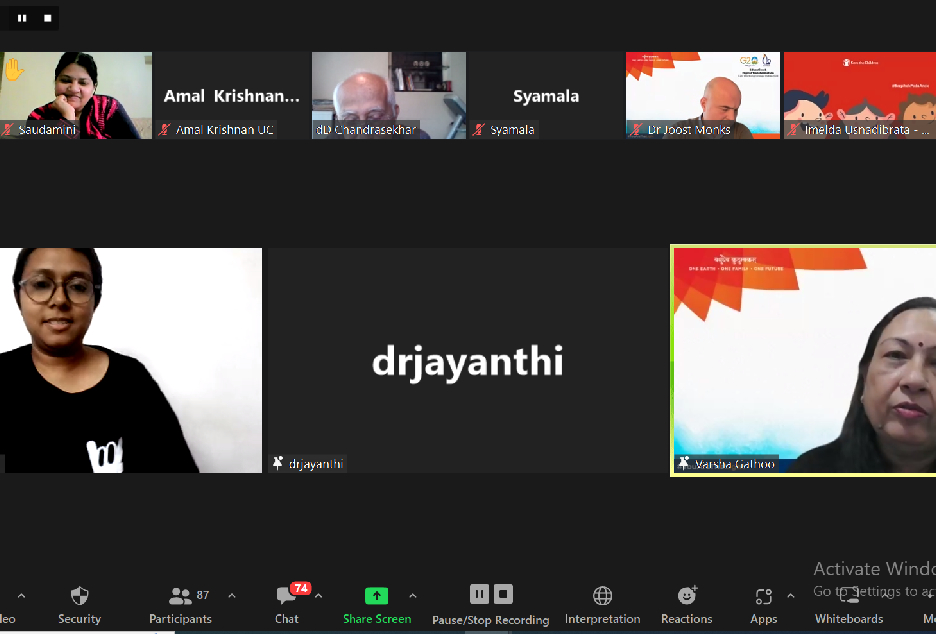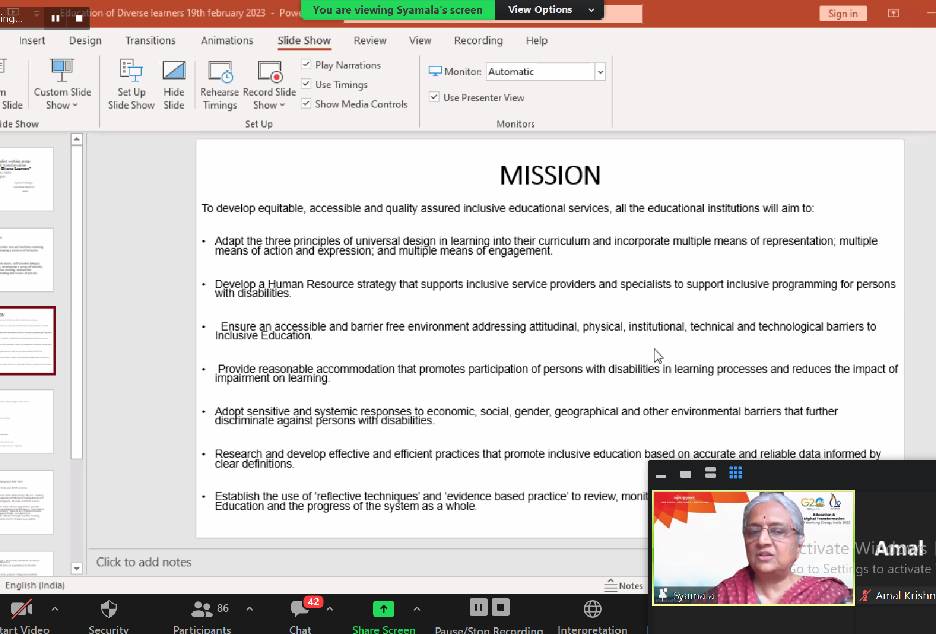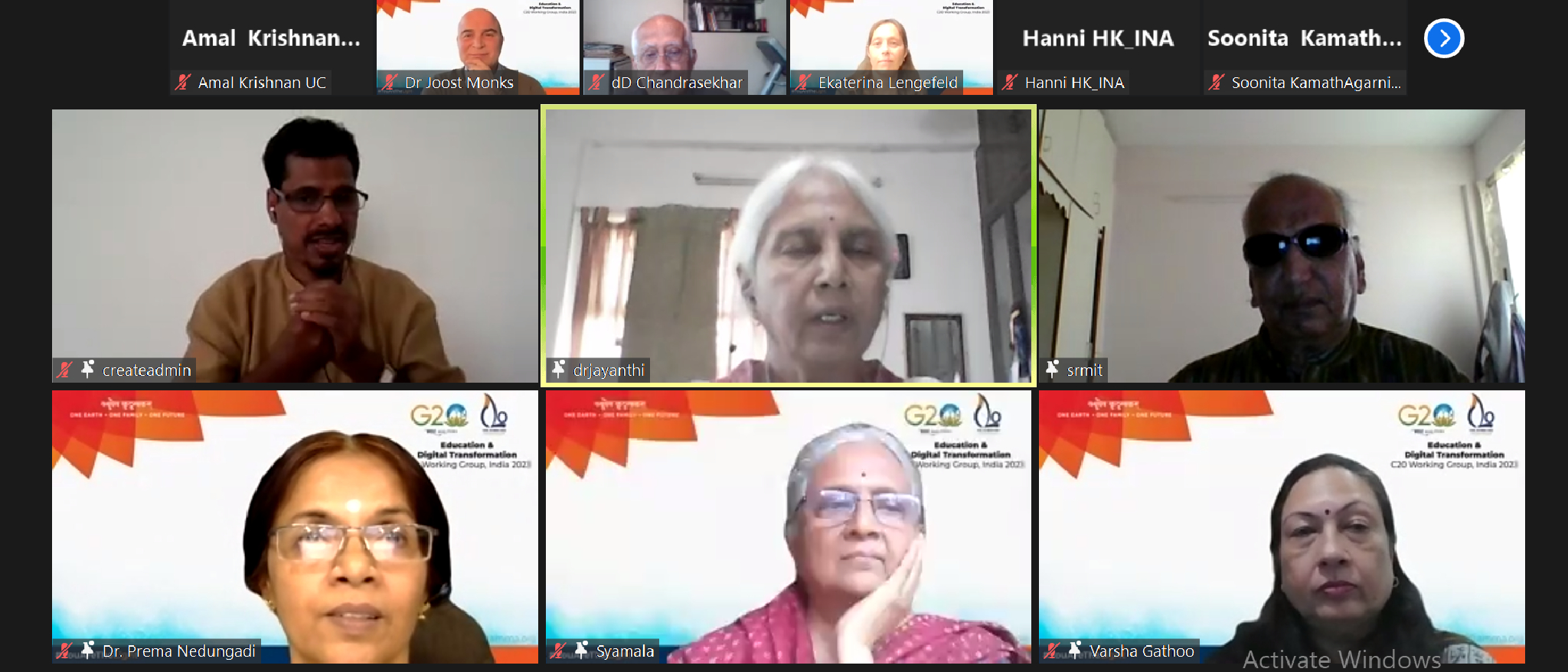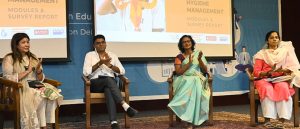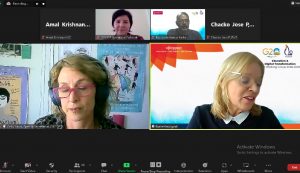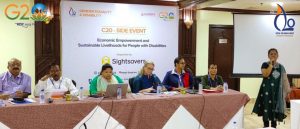A Virtual Symposium was organized by the Civil 20 Education and Digital Transformation Working Group (EDT WG) on February 19, 2023. The meeting-initiated discussions on some of the most pressing challenges and barriers that CSOs and experts face in their communities, which could be developed and framed into C20 policy recommendations.
The panel discussion on Inclusive Education for Diverse Learners featured four eminent speakers and thought leaders: Prof. Shree Ram Mittal, Syamala Gidugu, D Chandrasekhar, Dr. Varsha Gathoo. The moderator was Dr. Jayanthi Narayan.
The distinguished panelists and speakers comprised disability advocacy leaders focusing on education to empower persons with disabilities, each with decades of on-the-ground experience. Prof. Shree Ram Mittal, a Retired Professor from the University of Delhi with over 40 years of experience in teaching and research related to visual impairment, draws from his lived experience of navigating the education system and guiding students, teachers, teacher trainers, and research scholars.
In his opening remarks, Prof. Shree Ram Mittal, stated that the ideal goal of inclusive education is that schools must have facilities that cater to students with different disabilities. He highlighted four key barriers to implementation: lack of qualified teachers, physical infrastructure for special education, lack of special equipment, traditional and software solutions, and societal attitude. He emphasized the need for support from the government and CSOs to improve.
Syamala Gidugu, Executive Director, AADI, which stands for, Action for Ability Development & Inclusion. AADI has been working with people with disabilities since 1978. She shared her vision of inclusive education and said that educational institutions should be accessible and facilitate learning environments. With regard to policies, she noted the need for specific recommendations that are synergistic in nature between RTE and RPWD Act and linking it to NEP 2020. She emphasized the importance of UDL (Universal Design Learning) curriculum and the need for reasonable accommodations for students with disabilities.
D Chandrasekhar is the Founder and President of the Madras Dyslexia Association (MDA), which over the last thirty years, has supported children with dyslexia. MDA creates awareness about this hidden disability by conducting training programs for individuals interested in teaching dyslexic children and advocating for different examination criteria to educational authorities. MDA brings together various stakeholders, people, and experts to share the best practices to facilitate optimal intervention.
Dr. Varsha Gathoo is a Retired HoD, Special Education, National Institute for Empowerment of Persons with Hearing Impairment, Mumbai. With over 33 years of experience in special and inclusive education, she explained, “The inclusion word draws its strength from the Invitational theory of Purkey, not because it just starts again with an I, but the invitational theory has got five Ps.”
The moderator of the panel Dr. Jayanthi Narayan, who is a Retired Deputy Director of the National Institute for the Mentally Handicapped (NIMH), Ministry of Social Justice and Empowerment, Government of India said, “Justice, equality, and equity has been highlighted, so also the universal design for learning all our speakers are highlighted on the universal design for learning and reasonable accommodation…”
